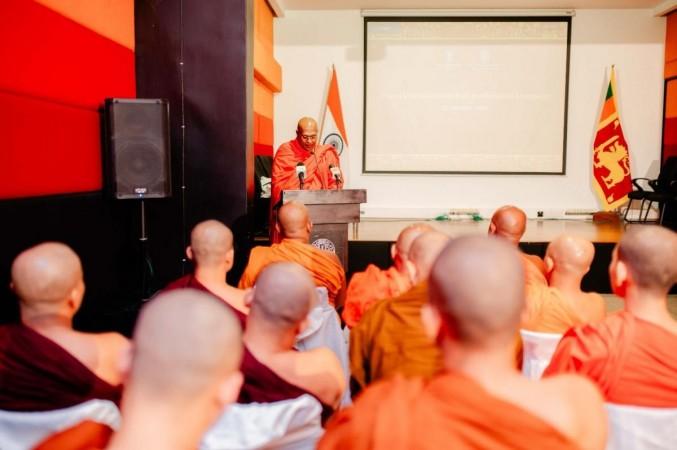
Indian Government, under the leadership of Prime Minister Narendra Modi, has conferred Classical Language status on Pali. This decision has been met with widespread approval, particularly among those who hold the teachings of Bhagwan Buddha in high regard. Prime Minister Narendra Modi expressed his delight over this decision, stating that it has ignited a spirit of joy among those who believe in the thoughts of Bhagwan Buddha.
He conveyed his sentiments in response to a post by the India in Sri Lanka handle, stating, "Glad that the Indian Government's decision of conferring Classical Language status on Pali has ignited a spirit of joy among those who believe in the thoughts of Bhagwan Buddha. Grateful to the scholars and monks from different nations who took part in this programme in Colombo." The decision to confer Classical Language status on Pali is significant as it recognizes and honors the importance of Pali, the language associated with the teachings of Bhagwan Buddha.
This decision is not only a testament to the cultural and historical significance of Pali but also a recognition of its relevance in the contemporary world. The announcement was made during a panel discussion on 'Pali as a Classical Language' hosted by the Indian Council for Cultural Relations (ICCR) in Colombo, Sri Lanka. The event was attended by scholars and monks from different nations, including Sri Lanka, Bangladesh, Myanmar, and Nepal. The Prime Minister expressed his gratitude to these individuals for their participation in the event.
Welcoming India’s recent decision of recognising Pali as a classical language! @iccr_colombo hosted a panel discussion on 'Pali as a Classical Language'. Graced by DHC @DrSatyanjal & Secretary, Ministry of Buddha Sasana, Religious & Cultural Affairs as Chief Guest. pic.twitter.com/tijUylr0JR
— India in Sri Lanka (@IndiainSL) October 23, 2024
This decision by the Union Cabinet, chaired by Prime Minister Narendra Modi, is part of a broader initiative to confer the status of Classical Language to several languages. In addition to Pali, the status was also conferred to Marathi, Prakrit, Assamese, and Bengali languages. This move is seen as a significant step towards preserving and promoting the rich linguistic diversity of India. In a similar vein, the Prime Minister also extended his greetings to the ITBP Himveers and their families on the occasion of ITBP Raising Day. He hailed the ITBP as a symbol of valour and dedication, lauding their efforts during natural disasters and rescue operations. He stated, "Raising Day greetings to ITBP Himveers and their families. This Force stands tall as a symbol of valour and dedication. They protect us, including in some of the most challenging terrains and tough climatic conditions. Additionally, their efforts during natural disasters and rescue operations inspire immense pride among the people."
The decision to confer Classical Language status on Pali is reminiscent of similar historical events where languages have been recognized for their cultural and historical significance. For instance, in 2004, the Indian Government declared Tamil as a Classical Language, followed by Sanskrit in 2005, Kannada and Telugu in 2008, Malayalam in 2013, and Odia in 2014. These decisions have played a crucial role in preserving the rich linguistic heritage of India and promoting scholarly research in these languages. The decision to confer Classical Language status on Pali is a significant milestone in recognizing and preserving the cultural and historical importance of this language. It has been met with widespread approval, particularly among followers of Bhagwan Buddha, and is seen as a testament to the Indian Government's commitment to preserving and promoting the country's rich linguistic diversity.








